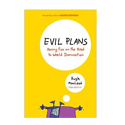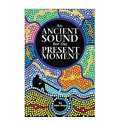Resources
Immediate help or ideas to use in our
counseling, coaching, or consulting work
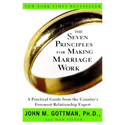
What Makes Love Last is a recent update from John Gottman and the Gottman Institute is far more than a repeat of previous information – it’s a very helpful guide that builds off the previous book, but also has a wealth of new information. Particularly helpful for couples struggling through infidelity, but also a great read for all couples. This is one of the most recommended and referred to books I have in my office for working with couples. In it, Gottman plumbs the mysteries of love: Where does it come from? Why does some love last, and why does some fade? He also dives deeply into the concept of Trust – how it is maintained, and how to rebuild it after it is broken.
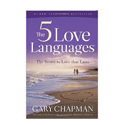
The world’s greatest road map for father’s of daughters. Let’s face it guys, we don’t always know what we are doing – wouldn’t be helpful to have a little help? Dr. Meeker provides that help in Strong Fathers, Strong Daughters. This is a book I return to often, and each time, as my girls get older, I learn something new.

I personally haven’t read this book, but maybe you need to – Dr. Meeker’s answers for raising sons. If it is anything like Strong Fathers, Strong Daughters, it is well worth the read. Boys Should Be Boys, one of our most trusted authorities helps parents restore the delights of boyhood and enable today’s boys to become the mature, confident, and thoughtful men of tomorrow. Boys will always be boys–rambunctious, adventurous, and curious, climbing trees, building forts, playing tackle football, and pushing their growing bodies to the limit as part of the rite of passage into manhood. But today our sons face an increasingly hostile world that doesn’t value the high-spirited, magical nature of boys. In a collective call to let our boys be boys, Dr. Meg Meeker explores the secrets to boyhood.
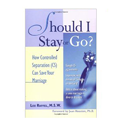
Ranked as one of the Top 10 “Most Gifted Books of the Past Century”, Man’s Search for Meaning is the first of nearly 50 works from Viktor Frankl. It describes the foundation of “Logotherapy” – his theory of mental health and healing through the discovery of meaning (“logos”) in life – through his early experiences and his years in a German concentration camps through WWII. Most who read it describe this as a “life changing” book. I know it was for me – after I read it, I chose to study Frankl more in-depth and devoted several years in my doctoral studies to his ideas. If we work together, you will certainly hear me speak of Frankl and the power of his ideas.
Jordan B. Peterson is an excellent therapist and outstanding storyteller. His early research involves studying ancient texts from multiple religions and traditions to understanding overlapping ideas of “meaning” throughout human history. He taught multiple classes on this at Harvard and now at the University of Toronto. His most recent book, 12 Rules for Life: an antidote for chaos, weaves this initial work with current events and stories from his private practice. One of my favorite recent books – I also recommend his podcast to expand on these ideas.
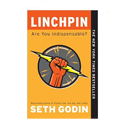 Simply type “Seth” into Google, and Seth Godin will be at the top of your search results. In Linchpin: Are You Indispensable? Seth talks about the importance of Emotional Labor and what you can do to be a stand-out in whatever it is you choose to do in life. It is part motivation, part real nuts-and-bolts behavior change. He talks about defying your “Lizard Brain”, and pushing through to be your true authentic self, and shares quite a few case studies of people who have done so. This is truly one of my favorite books of all time, one I return to often, and one I think most people would benefit from reading.
Simply type “Seth” into Google, and Seth Godin will be at the top of your search results. In Linchpin: Are You Indispensable? Seth talks about the importance of Emotional Labor and what you can do to be a stand-out in whatever it is you choose to do in life. It is part motivation, part real nuts-and-bolts behavior change. He talks about defying your “Lizard Brain”, and pushing through to be your true authentic self, and shares quite a few case studies of people who have done so. This is truly one of my favorite books of all time, one I return to often, and one I think most people would benefit from reading.
Research has proven that a few minutes of meditation each day can promote overall mental, emotional, physical, and spiritual health. It can calm anxiety and strengthen our bodies against depression and mental illness. It can help us cope better with difficult situation, and diffuse moments of anger. But, what is it? “Meditation” often conjures up images of grey-bearded old men sitting cross-legged on mountain tops for most of their lives. But it can be much more simple. My friend Dr. Samuel Boys does a phenomenal job teaching you about the science and art of mediation with the didgeridoo in his book An Ancient Sound for the Present Moment. There is a complimentary CD with the book, or you can download his didgeridoo music as well and a variety of tracks with Sam coaching you through different forms of meditation and deep breathing.
You may have heard of Dr. Andrew Weil on any number of popular daytime shows, but his work far supersedes these television appearances – Spontaneous Healing is simply great. As I read it, I felt like it was all the concepts I subscribe to as a therapist, husband, father, and just as a person all condensed into an easy to read volume. I highly recommend this book for anyone looking to help with depression or anxiety, or if you are simply looking to make some healthier choices in life while avoiding over-medication.

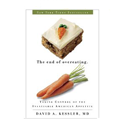
I’ve been a practicing Licensed Clinical Addictions Counselor (LCAC) for nearly 20 years. I’ve taught graduate level courses in Addictions for the past decade. Allow this experience and knowledge to help you in my online course Substance Abuse, Addiction, and Recovery – hours of graduate level instruction in the foundational concepts of substance abuse and recovery, as well as a self-guided step-by-step meaning-centered recovery program. Learn more about Substance Abuse, Addiction, and Recovery here.
One of my favorite and most referred to book on recovery. I like to say Dr. Dodes took all the concepts I used inherently, and wrote the book before I was able to. His methods, case studies, and examples are very consistent with the work I do in my office with individual struggling with addiction.
The follow-up to his groundbreaking volume The Heart of Addiction, Dr. Lance Dodes’s Breaking Addiction is a step-by-step guide to beating addiction of any kind—from drugs and gambling to alcoholism, overeating, and sex addiction. By recognizing and understanding the emotional forces underlying addictive behaviors, Dr. Dodes says any dangerous, life-destroying obsession can be overcome. Including special bonus sections for both families and health-care professionals, Breaking Addiction is the new handbook for those suffering from addiction—a valuable resource that addresses addiction’s root causes and serves as an alternative to Alcoholics Anonymous and similar recovery programs
This is an outstanding collection of academic papers on the topics of Logotherapy, Meaning, and Recovery. It may be a little heady for the casual reader, but definitely a valuable asset for the clinician. This contains the Meaning-Center 12-step Recovery Program referenced in my Substance Abuse, Addictions, and Recovery course.
This is a rare collection of papers by leading authorities on addiction recovery. The distinguished list of contributors includes Alan Marlatt, George Vaillant, Stanton Peele, Jaak Panksepp, and Scott Tonigan. Although each represents different theoretical perspectives of addiction and recovery, all see recovery as more than mere abstinence. The first half of this book contains addresses from the Fourth International Meaning Conference, which focused on meaning and addiction. The second half of this volume uniquely focuses on the positive psychology of meaning and spirituality as an answer for addiction. The existential dilemmas of meaninglessness, boredom, and anxieties often trigger cravings for substance abuse.
The classic that started it all nearly 80 years ago. Time tested principles that may not work for everyone, but that have work for many people.
The Myers-Briggs Type Indicator is one of the most widely used and researched personality inventories of the past half century. I have used it hundreds of times to help individuals understand themselves and their choices better, especially when it comes to career choices. I have administered it to couples in order for them to understand and develop respect for their differences. And I have used it with leadership and management teams to compare personalities, operating styles, and to improve overall performance and productivity. This is an outstanding assessment that can help in many ways. If this is your first time taking a look at it, I certainly recommend the book below if you want to get in-depth into the MBTI and the surrounding research how can I help you use the MBTI to better understand yourself, your relationships, and your work?
Please Understand Me has a full breakdown of the history and development of the Myers-Briggs Type Indicator, as well as a full assessment of differential pairs, and an extensive description of each personality style. There is quite a bit of “inside psychology” info and description. I encourage you to take a look if you want to go in-depth. Although, because it is so well studied and written about, you can often take your 4-letter profile and internet search the profile “and career” or “and relationships” or just about any other word you want to know how a profile operates in. Two of my favorite sites are The Definition of Heaven and The Definition of Hell for each MBTI type.
For those I have recommended to administer the inventory, please use the MBTI excel sheet or MBTI inventory PDF provided.
Once you complete the inventory and have your 4-letter profile, you can internet search it, or review the brief statement here in the MBTI Portraits.





